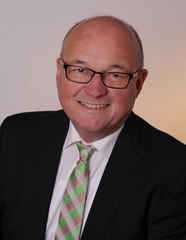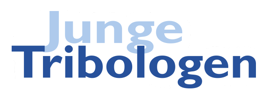Interview with Prof. Dr. Manfred Jungk

What are your hobbies?
Ball room dancing, wining and dining as well as walking and biking.
Where do you work and what’s your position?
With around 3 decades of experience in the lubricant industry, I am now the managing director of MJ Tribology, a company dedicated to lubricants tribology over the entire value chain with a focus on knowledge transfer, embedded in a strong network.
How did you end up in the field of tribology?
I graduated from University of Cologne as a chemist and obtained a PhD in natural science. With this scientific education as a starting point, I dipped more and more into engineering topics and finally ended up in the field of tribology with its fascinating interdisciplinary approach
If you were to explain “A” in the “Sendung mit der Maus”, how would you do that? If helpful, please feel free to add a schematic.
Several years ago, I was involved in a project related to railway engineering. The question was as how to one could control the noise generated by brake discs and brake pads of a train. I guess most people know about this noise but probably less people know about the source of this noise. For a tribologist, this is clearly related to stick-slip events. So how to explain this in a vivid way? I would like to compare the brake discs and brake pads with the strings of a violin. When the bow is moved against the strings of the violin, the strings show a sequence of start and stop events with a certain frequency, depending on the dimensions of the instrument and how it is played. This start and stop events, taking place with a certain frequency is what is known as stick-slip in tribology and what causes the squeaky noise of the train brakes.
Do you have any favorite anecdote about the broad field of tribology?
Which one out of the following 4 applications does not use a lubricating grease:
Laptop, Dental Drill, Glas Fiber Cable, Ball Pen.
If you had one wish with the “Young Tribologists”, what would you wish for?
I would like to encourage the Young Tribologists to keep on winning young professionals or maybe even undergraduates for the field of tribology. I would like to point out the responsibility of leaders in industry and academia to support young scientists and engineers in joining the activities of your group. To round it up, I would be glad to see the Young Tribologists growing into other roles in GfT as we already saw in the case of Dr. Mirjam Bäse who is now part of the executive board of the GfT.
Which trends would you see in the field of tribology, especially which applications do you think would gain increasing importance in the future?
We cannot emphasize enough the importance of tribology for a sustainable future. This is of particular importance and we should carry this message to the public.
What do you think are the three most relevant competences for somebody working in the field of tribology?
As already mentioned, tribology is a particularly interdisciplinary field. This is why a tribologist should be able to work in complex environment and to explain the relevant points in a scientific manner to the parties involved, always having in mind that those may come from very different spheres.
What is the source of your motivation for working in this field?
I find it enriching to meet people from different fields and different countries, e.g. at international conferences and in the respective professional organizations. I appreciate very much the recognition I receive for what I have achieved.
